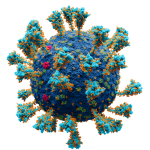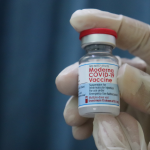Vaccination is a pillar of disease prevention, but Americans are under-vaccinated. We need a multi-pronged public education campaign with participation from politicians and celebrities of every stripe.
Science Communication
In this radio conversation, John Batchelor and I discuss the effectiveness of vaccines and the challenges posed by new variants of SARS-CoV-2 (the virus that causes COVID-19) such as the now-dominant JN.1.
Many Americans are obsessed with nutrition or totally disinterested in it. Why are these extremes so common? ACSH contributor David Lightsey joins us to explain. Public health officials committed many blunders during the pandemic. Part of the problem may have been the incomplete and often inaccurate information they were working with. How can they avoid the same errors next time around?
Britain may soon approve a gene-edited tomato that boosts vitamin D intake. Let's take a look at the science and politics surrounding this important development.
A recent study has helpfully advanced our understanding of sudden infant death syndrome (SIDS). Some journalists exaggerated the paper's results in their rush to publish stories. Fortunately, other reporters helpfully and publicly corrected the errors. This is how the media should always operate.
The New York Times recently published an excellent story illustrating what causes vaccine hesitancy and how to effectively combat it. Is the media finally learning that forcing shots on people doesn't work?
A new study suggests that vaccine lotteries won't boost COVID-19 immunizations. Politics and hypocrisy may help explain why these incentive-based campaigns yield disappointing results.
A new poll confirms that vaccine uptake is increasing in the U.S. There are legitimate concerns about convincing the minority of immunization skeptics to get their shots as we pursue herd immunity. But risk-averse regulators and panic-prone journalists may be exacerbating the problem.
Farewell articles are tough to write, which is one reason why I try not to write them very often.
A few weeks ago, our medical director, Chuck Dinerstein, sat down to discuss ACSH with Great.com on their podcast “Great Talks With.” Great.com is a Swedish company funded by online gambling and dedicated to talking “with organizations and experts dedicated to doing good in the world.” Dr. Dinerstein discusses our role in separating science fact from science fiction in a media environment where trustworthy commentary is difficult to find.
The globalization of regulation, our friend the fungus, communicating science, and the search for a less sugary sugar.
A whopping 62% of Americans are afraid to share some of their political views because somebody might be offended. As we all know now, if you offend somebody, you can lose your job and have your life destroyed. Michael Shellenberger, a prominent environmentalist who believes that climate alarmism is misguided, is feeling the fury of the mob.











